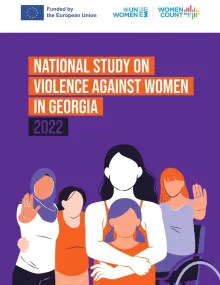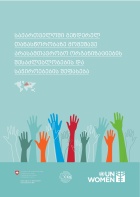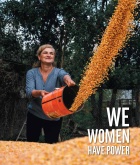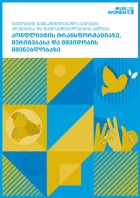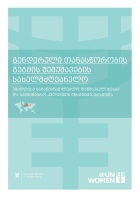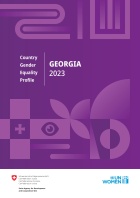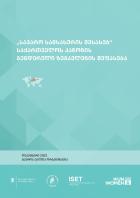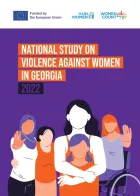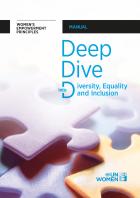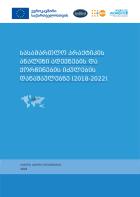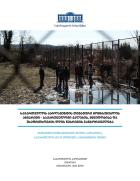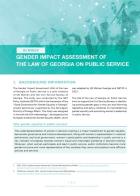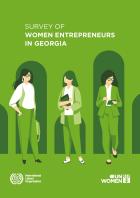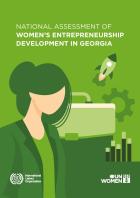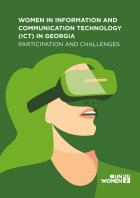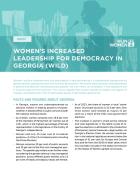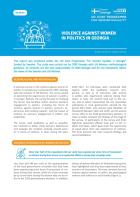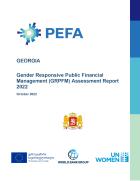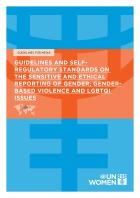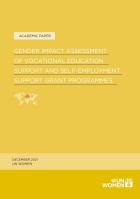Date:
The study was conducted in 2023 and assessed capacities of CSOs working on gender equality and women’s empowerment in Georgia, identified their main strengths and weaknesses and developed evidence-based recommendations on designing tailored capacity development support initiatives for CSOs in order to facilitate their engagement in decision making on gender equality and women’s empowerment in Georgia.
Date:
Since 2013, the UN Women Country Office in Georgia has been working on strengthening the capabilities and skills of women living in rural areas with the support of social mobilization. Community training sessions on this topic help them to continually participate in how local priorities and budgeting are determined.
Date:
The study on Views and Attitudes of IDP Women on Conflict Transformation, Reconciliation and Peacebuilding is the first of its kind in the field and uses quantitative and qualitative methods to examine the perspectives of IDP women, including young. The Study further offers alternate solutions and recommendations for fostering conflict transformation, peaceful conflict resolution, and confidence-building measures in Georgia.
Date:
The manual includes specific guidelines, recommendations and useful resources for higher education institutions and research organizations for developing, implementing and monitoring gender equality plans.
Date:
Country Gender Equality Profile (CGEP) of Georgia serves as a comprehensive national-level analysis of the status of gender equality in the country. Based on quantitative and qualitative analysis of recent data, the CGEP provides strategic analysis of progress, trends, challenges and priorities around gender equality in Georgia and serves as a blueprint for targeted interventions, policy reforms and institutional improvements to advance gender equality and women’s rights in the country.
Date:
The findings of the Gender Impact Assessment (GIA) of the Law of Georgia on Public Service identify the causes and consequences and analyze the main barriers to women’s leadership in public service, as well as offer a set of legislative and policy recommendations on promoting women’s leadership and mainstreaming gender in public service.
Date:
The study was conducted by UN Women in partnership with GEOSTAT within the framework of the “Ending Violence against Women and Girls in Georgia” project funded by the European Union and UN Women’s "Making Every Woman and Girl Count" programme in Europe and Central Asia (Women Count).
Date:
This manual primarily aims to provide human resources and DEI professionals in WEPs signatory
Companies - large and small-with guidance to design, implement and track progress against
their workplace DEI policies and procedures and cultivate corporate DEI cultures.
Date:
Considering the specific nature of the crimes, court practice was examined from a gender perspective. The study is comprehensive, as it analyses all judgments rendered by the common courts of Georgia between 2018 and 2022.
Date:
The Thematic Report of the Parliament of Georgia on the "Implementation of the Women, Peace and Security Agenda in Georgia" was prepared by the Thematic Rapporteur, the Member of the Parliament of 10th convocation, Ms. Teona Akubardia, in February 2023.
Date:
This brief provides the summary of the Gender Impact Assessment (GIA) of the Law of Georgia on Public Service. The research aims to support the Civil Service Bureau in identifying existing gender gaps in the Law and to provide the Government of Georgia with evidence-based recommendations for its improvement to further promote gender equality and women’s empowerment within public service.
Date:
This report summarizes the findings of the Women Entrepreneurs Survey in Georgia. This data
collection effort is part of a larger study by UN Women and the International Labour
Organization (ILO) in Georgia aimed at conducting the National Assessment of Women’s
Entrepreneurship Development in Georgia.
Date:
The starting point for the National Assessment of Women’s Entrepreneurship Development in Georgia was a firm belief that helping more female entrepreneurs build successful businesses could unlock enormous value for the economy of Georgia.
Date:
Human capital in ICT is a driving force for digital and digital-enabled innovations and is considered crucial for the competitiveness of modern-day economies. With the ICT sector heavily gender segregated and facing a huge demand for new specialists, the greater involvement of women is crucial for the support of the digitalization process and growth of economies.
Date:
This brief provides a short description of the UN Women project “Women’s Increased Leadership for Democracy in Georgia” (WILD) generously funded by the Swiss Agency for Development and Cooperation (SDC).
Date:
This publication represents the findings of a national survey on the violence against women in politics in Georgia, gathering the experiences of women in politics in Georgia. Namely, it examines the factors that facilitate and/or obstruct women’s engagement in politics, including the forms of violence against women in politics, women’s experiences with seeking support, and the impact of violence on women’s engagement in politics and leadership.
Date:
In 2021-2022, the Ministry of Finance (MoF) with the support of UN Women and in partnership with the World Bank (WB) conducted the Gender Responsive Public Finance Management (GRPFM) self-assessment. The assessment is a part of the larger Public Expenditure and Financial Accountability (PEFA) assessment and evaluates the degree to which Georgia’s public finance management (PFM) system is gender responsive.
Date:
Increasing evidence confirms that the achievement of the global 2030 Agenda with its Sustainable Development Goals (SDGs) will not be possible without the acceleration of women’s economic empowerment. UN Women, with the help of the Norwegian Government, has been working on the economic empowerment of rural women for more than decade. Rural women play the greatest role in the development of the country's economy.
Date:
The guidelines below are intended to support members of the media in providing fairer and more sensitive reporting. They are based on the ‘Report of the 1st Conference of the Council of Europe Network of National Focal Points on Gender Equality, in addition to research and recommendations by international media development organizations.
Date:
Gender Impact Assessment (GIA) of vocational education support and self-employment support grant programmes was conducted by the ISET Policy Institute (ISET-PI) within the framework of the UN Women project “Accelerating Implementation of the Women, Peace and Security Agenda in Georgia”, generously funded by the Conflict, Stability and Security Fund of the British Government.
